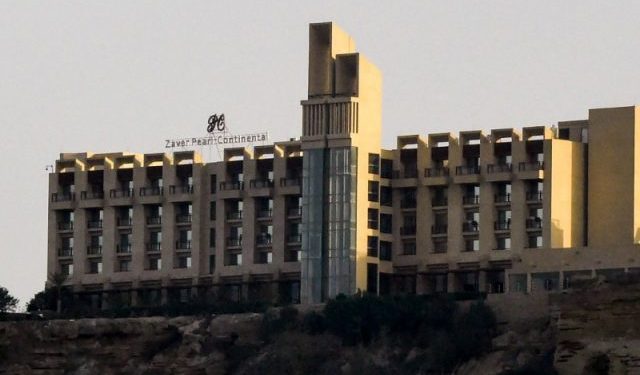Nurturing terrorism has, for long, been seen as a state policy in Pakistan. The luxury hotel attack in Gwadar port city two days ago must be seen as a wake-up call to the rulers of that nation. Luckily for it, the bomb attack did not result in large-scale casualties. Some four civilians, a security guard and three attackers lost their lives. Hotel guests and employees, fewer in number due to the season of Ramadan, were safely evacuated. Notably, there have been a series of such attacks in Balochistan in recent times, meaning an uptick in the insurgency and demand for separation from Pakistan.
The Balochistan Liberation Army (BLA) has claimed responsibility for the hotel attack, and stated that the offensive was against the Chinese presence in Pakistan’s largest province spread over the southern and western parts. BLA says the Chinese investment in projects in Balochistan, including the $60 billion for the China Pakistan Economic Corridor reaching up to the Gwadar port, would in no way benefit the locals. The alienation of the locals from the Punjabi-centric power structures in Pakistan is no secret. The military excesses on protesters in the streets are one too many, adding to this sense of alienation. Similar situations had resulted in the separation of East Pakistan and formation of Bangladesh in the mid 1970s. This situation is sort of getting repeated in the subcontinent, with India too displaying similar streaks of power getting concentrated in the hands of a select few.
Now, in Pakistan however China seems to be caught in between. The CPEC that has its last lap set through Balochistan in the southern sector is also part of its wider and more ambitious Belt and Road project, and aims mainly at reaching goods from industrial hubs in China to the Middle East, Africa and Europe through the newly built Gwadar port – the second port after Karachi. The CPEC investment involves the laying of rail lines, roads and pipelines, apart from the port, which could speed up Pakistan’s economic progress, overall. Pakistan suspects its enemies are at work to slow down the growth of the Islamic nation. Prime Minister Imran Khan has stated as much. Balochistan, the poorest province in Pakistan, has its borders with Afghanistan and Iran, both of whom are not on good terms with Pakistan. Several insurgent groups operate in Balochistan, including the Taliban. Notably, one of the worst attacks came in July last year, when over 130 people were killed in an attack on an election rally. Although an Indian role is referred to by some elements, the Pak military does not seem to give much credence to it, as can be observed by pro military media reports from that country.
Pakistan’s only strength is its army, the nurturing of which is costing the exchequer heavily. As is famously noted, “Every nation has an army, but in Pakistan, the army has a nation.” Spending more than what it could afford for a military build-up against India, the Islamic nation’s economy is in tatters. It managed to have an IMF bail-out, the 13th time in the past three decades, which would entail it a huge sum of $ 6 billion over three years. IMF loans are conditional to austerity norms, meaning social welfare initiatives will suffer, further aggravating the social tensions. PM Imran Khan has started his innings by saying he would not opt for another tranche of IMF loans, and would instead take financial support from Saudi Arabia and China. This, however, has not materialised.
In Pakistan, more than its people and politicians, the problem is the military brass, fattening themselves with huge pay and perks, who run the show from behind the elected leaders. They have their axes to grind. Their potential for mischief is high too, through entities like the military intelligence, the ISI. Imran Khan is trying to tread a middle course, not antagonising the military and yet seeking to be reasonable with people’s needs. With a flagging economy, how long he can remain afloat is a big question.






































